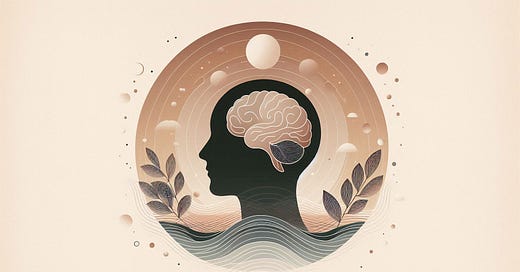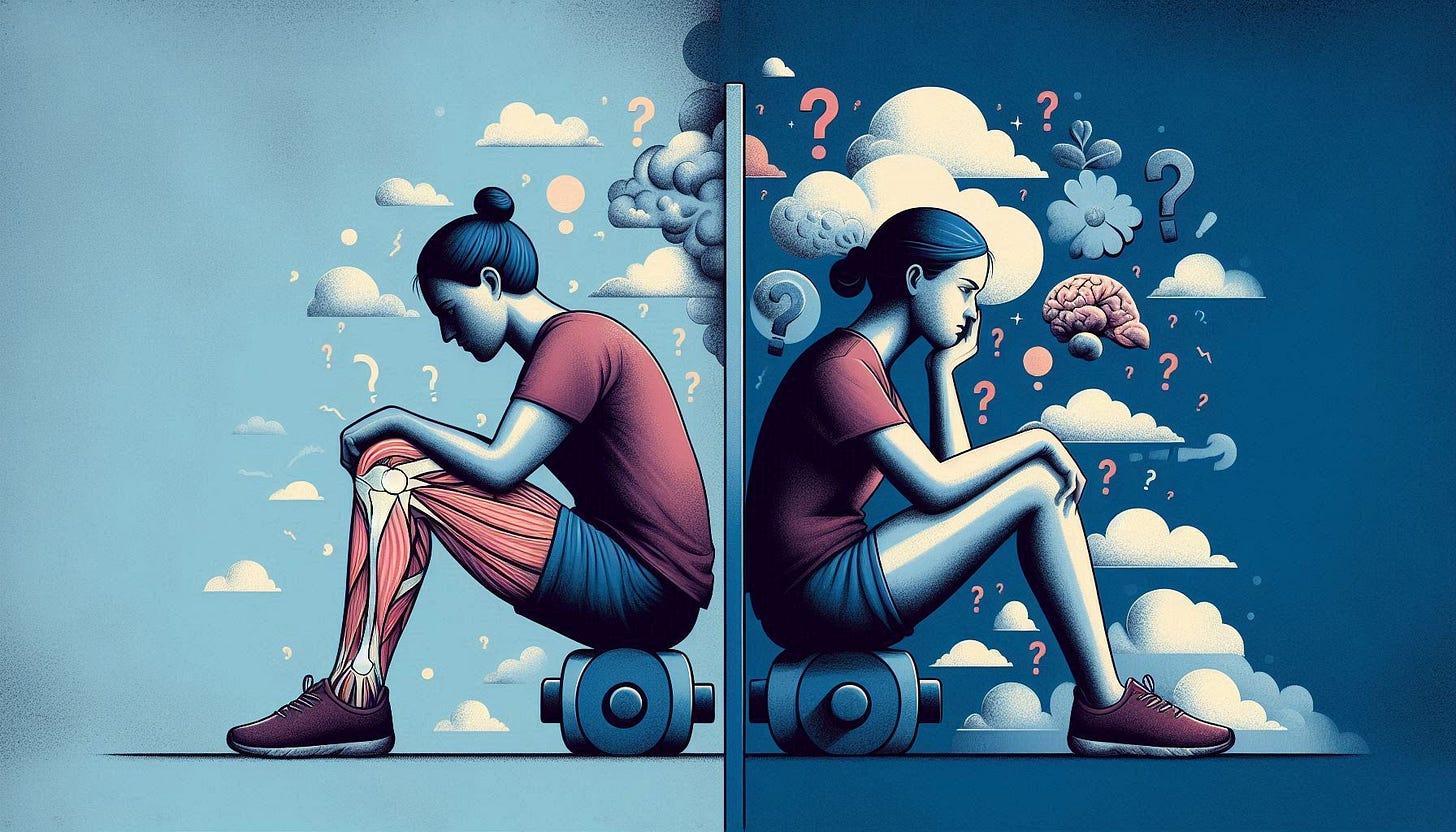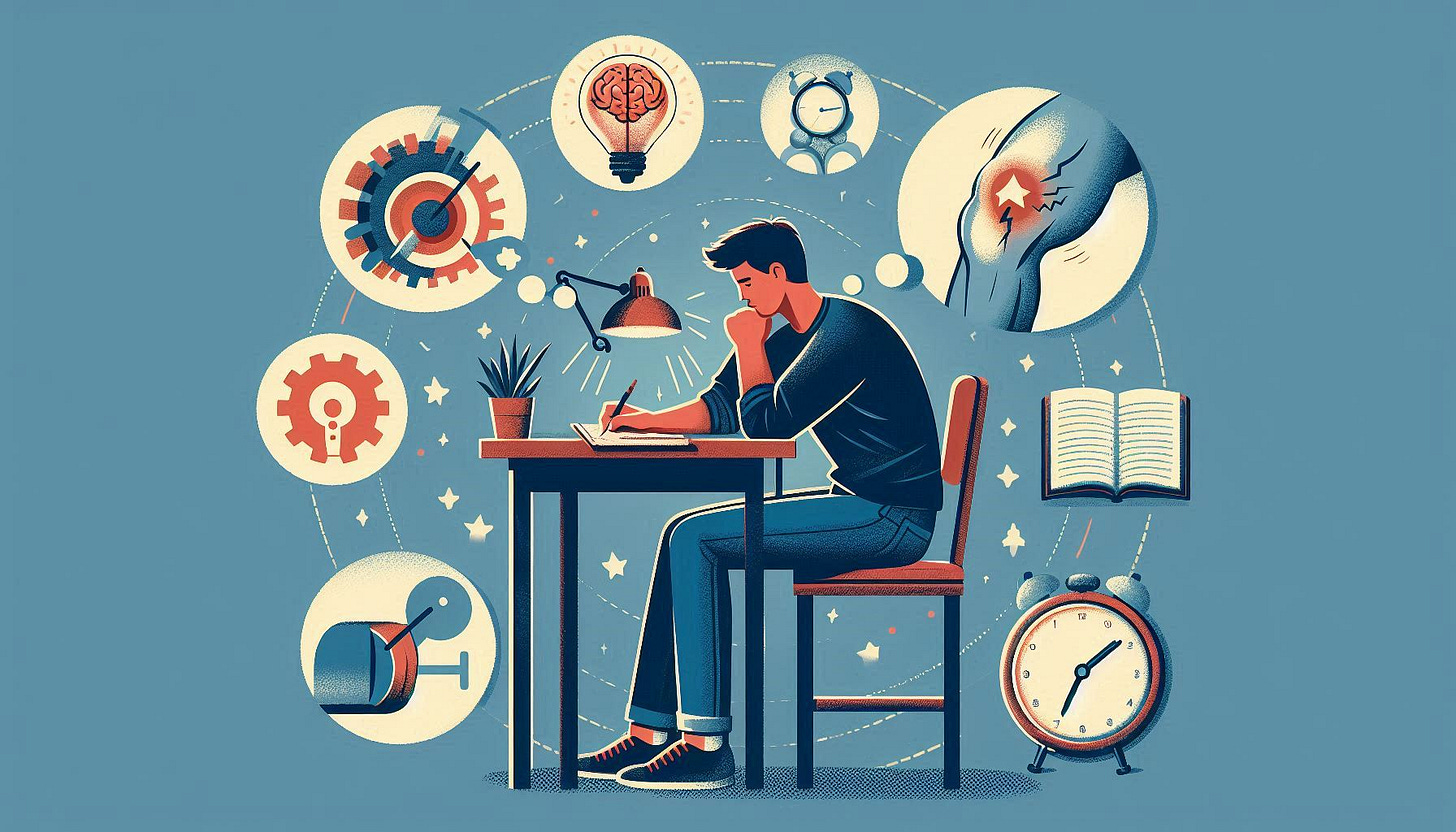Hey everyone, this is part two of my blog on how to improve mental health. If you've already read part one, you know that I have shared about what mental health is and what the levels of mental health are. If you haven't read it, go check that out first and then come back to this blog. And if you have read it, let's dive right into it.
How Do You Improve Mental Health?
Step 1: Is there a problem?
People often ask, "How do I know if I have a mental health issue?"
I like to respond by comparing it to a physical problem. For example, if you have knee pain, you're aware there's an issue. But how serious is it? Is it only when you lift something heavy, or even when climbing stairs? The severity varies, just like mental health.
In mental health, there might be something you want to do but can't, and that signals a problem. You may not know the exact cause, but just recognizing that something is wrong is the first step. Often, this awareness alone is enough to seek help. If you're unsure, speak to a therapist or psychiatrist to guide you further. In this blog, I’ll explain what the next steps are.
Step 2: Understanding what is the problem
Now, how do you go about this?
See, the tricky thing about mental health compared to physical health is that when it comes to mental health issues, we have a tendency to deny things or lie to ourselves. We don't like to accept that something is wrong because it almost feels personal. It almost feels like you're saying there's something wrong with you, as opposed to if there's a knee pain, you're able to say, "My knee is hurting, it's not me."
That is the problem with mental health issues, and that's why people take so long to admit that they are struggling. That's also why people struggle with understanding what the issue is.
One of the ways of getting past this problem is by writing. I've already made a video on why journaling is so important, and if you want to see that, the link is right here. But journaling, or writing down your thoughts, allows you to explore your own state of mind better, and you gradually gain a deeper understanding of what is bothering you so much.
Now, remember that the earlier you spot a problem and start understanding it, the easier it is to solve.
Coming back to the knee pain example: suppose you've just started having knee pain and immediately spot it. If you go to a doctor, they'll be able to treat you much better. But suppose your knee has been hurting for a few months now, and it's gradually started getting swollen and red, and you're unable to walk—if you go to the doctor then, isn't it much more difficult to treat it? It's very similar with mental health.
If you spot the problem early and can find out what the issue is early on, it is a much easier problem to solve.
So, after step number one, which is confirming there is a problem, and step number two, which is understanding what the problem is, comes step number three.
Step 3: Understanding why there is a problem
What has led to this situation? What has caused you to have this problem today?
Usually, the answer is always in the past, because just like physical problems, mental problems don't come out of nowhere. There’s always something that has led to this. The answers might lie in your childhood, teenage years, or experiences you've had in the past few years.
All of these things add up to certain behaviour patterns and thought patterns that have led to the situation today. Understanding this chain of causality is important if you want to fix it.
In physical medicine, we call this aetiology and risk factors. For example, if somebody has a heart attack today, it means that over the last few years, some things have happened in their heart or blood vessels that have led to this event. Similarly, in mental health, it is important to catch the early signs so that we can take the necessary steps at the necessary time.
Here again, both journaling honestly and speaking to a therapist will help you go through this process much better.
Medications
There are several medications for anxiety and depression, and these have been life-saving. Millions of people around the world have benefited from taking these medications, and if your therapist or psychiatrist decides that medications are the right approach for you, trust them.
Medications are there to help you get better. But remember that medications are not the cure for everything—they are only a support system. They are not a substitute for you taking care of your sleep, body, and working on yourself by journaling and having those difficult conversations.
Conclusion
This topic is a difficult one. It’s a long one, and I'm sure there are many nuances that I missed in this blog. If there are any questions you have or any other aspects of this conversation that you want me to cover, let me know in the comments below.
I'm pretty sure I will be writing more blog in this series on how to improve your mental health.
In the meantime, if you liked this blog share this with your friends and family in your WhatsApp groups. I truly believe this is a conversation that needs to happen in our families, especially in India, where awareness of mental health is still not as widespread as we would like it to be.
Cheers,
Sid.
PS: PS: If you are looking to learn more about Neuroscience: https://sidwarrier.com/courses









Very well writter sir. Particularly loved how you explained aetiology.
Request : I would request you to write more on the types of journaling for dealing with stressful situations. Also, sometimes it happens, that in extreme lows and often when anxious, a person cannot write immediately. What can be the strategy to deal with oneself in such situations and bring oneself to write and journal?